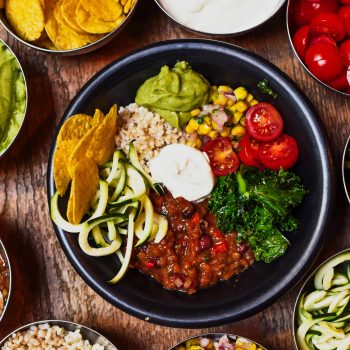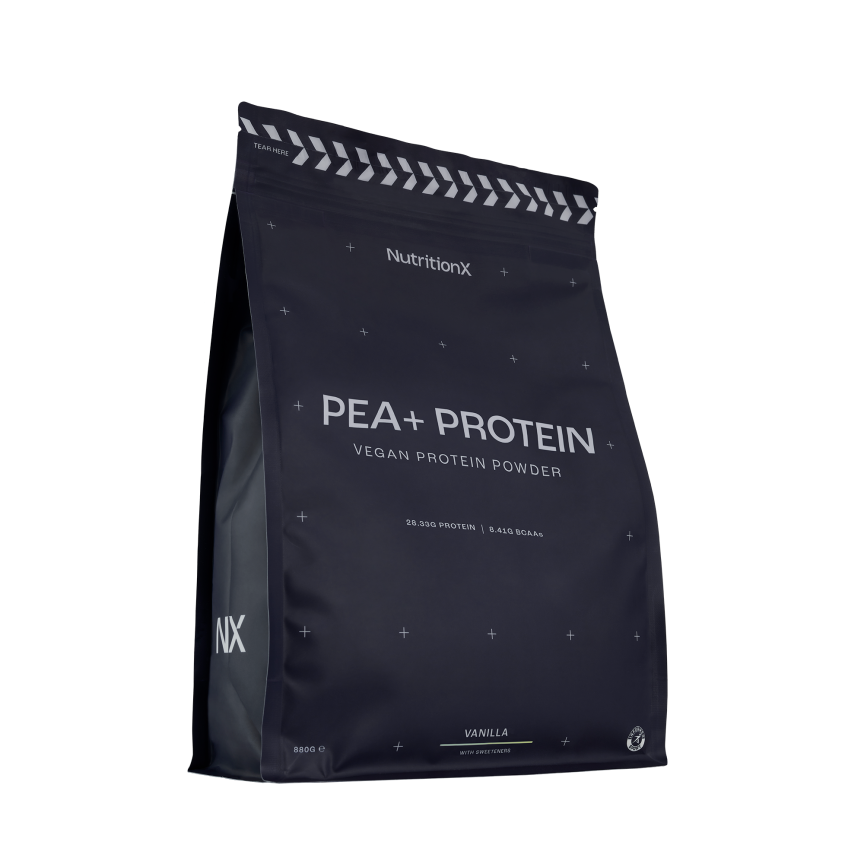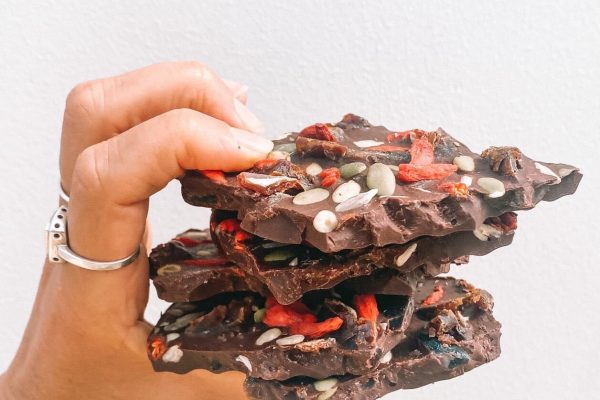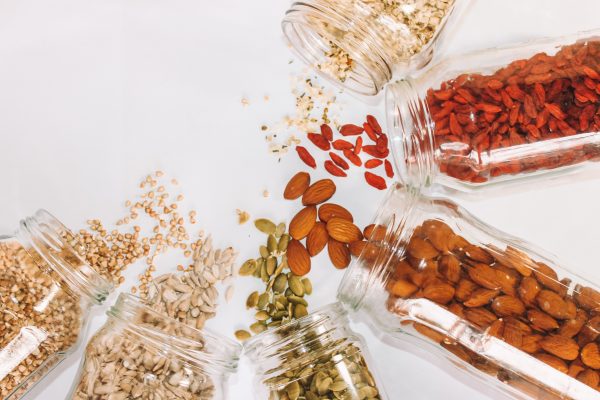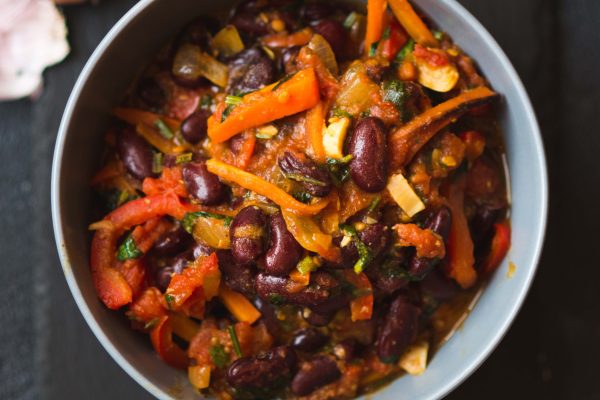Understanding how much protein you need is useful, but what does that look like in terms of real foods? Getting familiar with the amount of protein in common plant-based foods will help you meet your daily requirements without too much thought. Here are some of my favourite examples:
Breakfast:
45g Wholegrain Shreddies
150ml Unsweetened Soy Milk
1 Banana
1 tbsp Peanut Butter
1 tbsp Flax Seeds
1 tbsp Maple Syrup
MACROS l Carbs: 68g Protein: 17.9g Fat: 19.9g
Top tip: Try choosing plant-based milks which are fortified with vitamins, minerals, and protein.
Post-Workout Snack:
40g Nutrition X Pea+ Protein mixed with 250ml plant milk
MACROS l Carbs: 6.8g Protein: 34.8g Fat: 6g
Lunch: Black Bean Burrito Bowl
185g Cooked Quinoa
130g Black Beans, drained
70g Chopped Cherry Tomatoes
¼ Avocado
¼ Red Onion
2 tbsp Salsa
10g Tortilla Chips
MACROS l Carbs: 62g Protein: 22.1g Fat: 13.8g
Afternoon Snack:
3 Wholegrain Ryvita
2 tbsp Houmous
2 tbsp Pumpkin Seeds
MACROS l Carbs: 25.3g Protein: 15.3g Fat: 17g
Dinner: Lentil Bolognaise
140g Cooked Lentils
180g Cooked Wholewheat Spaghetti
¼ White Onion
1 Crushed Garlic Clove
½ can Tinned Tomatoes
1 tbsp Tomato Puree
1 tbsp Olive Oil
100g Steamed Broccoli
MACROS l Carbs: 87g Protein: 28.8g Fat: 15.4g
Dessert: Yoghurt Bowl
150g Alpro Greek-style Yoghurt
80g Frozen Berries
10 Cashew Nuts
1 tsp Maple Syrup
MACROS l Carbs: 16.3g Protein: 12.3g Fat: 14g
Top tip: If you exercise in the evening, try mixing a serving of Nutrition X Pea+ Protein into your yoghurt to create a thicker and creamier texture.
This meal plan is an example of how an 80kg person can achieve >1.5g/kg of protein on a plant- based diet. Macronutrient and calorie requirements will vary between individuals, so use these examples to help you meet your own personal daily requirements based on your activity level and individual needs.
Meal plans created using Nutritics (v5.61, Nutritics LTD, County Dublin, Ireland) McCance & Widdowson 7th Edition database.



